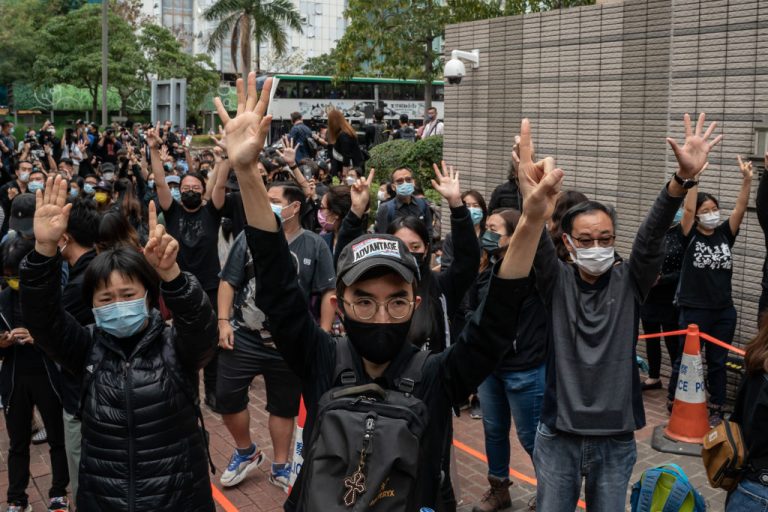On Nov. 11, Ma Chun-man, also known as “Captain America 2.0” was sentenced by a Hong Kong court to five years and nine months in prison for “inciting secession” by peacefully delivering multiple pro-independence speeches and posting similar content online.
Ma, a former food delivery worker, is the second person convicted and imprisoned under the contentious National Security Law (NSL) imposed on Hong Kong in June 2020. He is the first to be convicted based on his speech alone.
His defense described the 31-year-old man as a “non-violent loner who sought company at protests,” the Hong Kong Free Press (HKFP) reported.
Ma previously pleaded not guilty to chanting slogans and making speeches on 20 occasions between August and November 2020. His defense argued that Ma only intended to “test” the NSL and demonstrate that free speech was protected and that his calls for Hong Kong independence were not sincere.
District Judge, Stanley Chan, said Ma’s case amounted to a “serious nature” citing Article 21 of the NSL.
Success
You are now signed up for our newsletter
Success
Check your email to complete sign up
He said Ma showed no remorse for his crimes, quoting Ma as saying, “I don’t feel ashamed and I have no remorse for what I did in the past.” Ma was also subjected to a psychological evaluation that revealed Ma did not have “one ounce of remorse.”
The judge asserted that Ma was attempting to incite “the next revolution” and that he had a “layered” plan concocted to inspire other people to seize Hong Kong’s sovereignty.
The courts determined that Ma’s “radical behavior” was self-serving and was inspired by a need to seek exposure and “validate his existence,” adding that his behavior may prompt others to violate the law in a similar fashion.
Amnesty International’s Deputy Secretary General, Kyle Ward, in a statement, called Ma’s sentencing “outrageous,” adding that, “This conviction and sentencing clearly shows that restrictions on the right to freedom of expression in Hong Kong are dangerously disproportionate. The two verdicts handed down in national security law cases have not paid due regard to the human rights safeguards the Hong Kong authorities claim exist in the law.”
Ma’s sentencing is but the latest blow to the pro-democracy movement in Hong Kong.
Since the implementation of the NSL on June 30, 2020 — which outlaws secession, subversion, terrorism and foreign collusion — dozens of pro-democracy activists have been arrested.
On Sept. 8, four leaders of the now disbanded pro-democracy group, the Hong Kong Alliance in Support of Patriotic Democratic Movements (The Alliance), known for organizing the city’s annual 1989 Tiananmen Square massacre vigil, were arrested by authorities who allege the group was working as a “foreign agent.
The four arrested include the vice chairwoman and barrister Chow Hang-tung and standing committee members Leung Kam-wai, Tang Ngok-kwan and Chan Dor-wai.
In addition, the aggressive nature in which the Hong Kong authorities have wielded the law has forced several pro-democracy groups to disband due to safety concerns, including the Civil Human Rights Front, the Professional Teachers’ Union and The Alliance among others.














